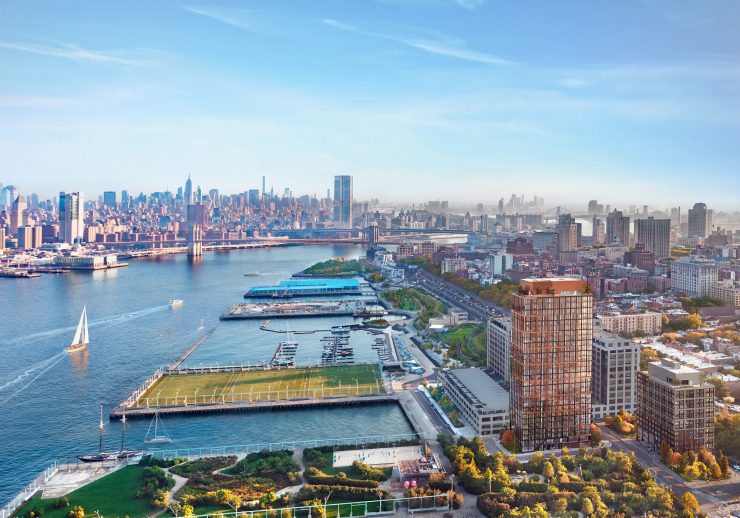A land lease is an agreement where the owners of a condo, co-op, or commercial building do not own the land their building sits on. Instead, they rent it from the landowner.
There’s a number of reasons a developer may take a land lease, also called a ground rent. They may not be able to afford the land they want to build on. In this case, the agreement provides the landowner rent and saves the developer costs upfront. The land also may not be for sale, as in a park such as Brooklyn Bridge Park. Land leases also enable buildings to be built in places they might otherwise not be built, such as land belonging to the government (such as Battery Park City Authority), a church, or another not-for-profit institution like a college or school.
Land leases have effects on a building’s future owners, too. Anyone looking to buy NYC real estate should be aware of this unusual condition.
How do land leases affect buyers financially?
Buildings with ground rents tend to have lower prices. In fact, if you spy a co-op significantly below market rate, that may be because it’s a land lease.
Ground rents also mean the landowner pays property taxes, not the co-op or condo owners.
But it’s not all upside financially. Firstly, not paying property taxes costs homeowners a good deal of the tax breaks associated with home ownership.
More importantly, common charges (for condos) and maintenance fees (for co-ops) tend to be higher for land-lease buildings. That’s because the land rent is factored into the common charges or maintenance.
Check out Marketproof New Development for the most information anywhere on NYC condos.
Do land leases affect condos or co-ops?
Both. But they are more frequently found in co-ops, which are generally older than condos.
Land-lease buildings are especially common in Lincoln Square, Roosevelt Island, and Battery Park City.
Is it hard to get a loan for buildings with ground rents?
Yes, buildings with land leases face more scrutiny than those without them.
Specifically, lenders will want to know how much time remains on the land lease. The terms for these leases tend to last 99 years with the option of a 20-year extension. If the term runs out in, say, 10 years, the buyer may have trouble getting a 15- or 30-year mortgage.
What happens when a land lease expires?
The co-op or condo board will typically try to renew the lease. But this typically requires renegotiating terms. That could mean a substantial hike in ground rent and, therefore, in maintenance or common charges.
In addition, the condo or co-op could try to buy the land from the landowner. This could significantly change the value of a building’s units.
Getting started with Marketproof
With Marketproof New Development, you can easily search both publicly listed properties and unlisted off-market properties not available on popular listing sites. Marketproof can increase the inventory you see by 9-10x what you may see on other sites. Create an account today, and get a 7-day free trial.
Photo above courtesy of Quay Tower.



